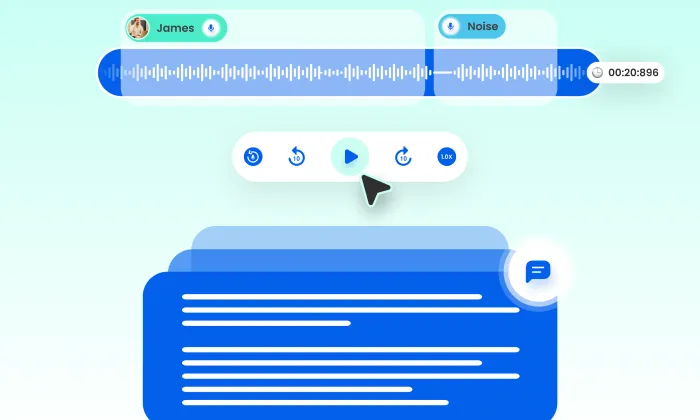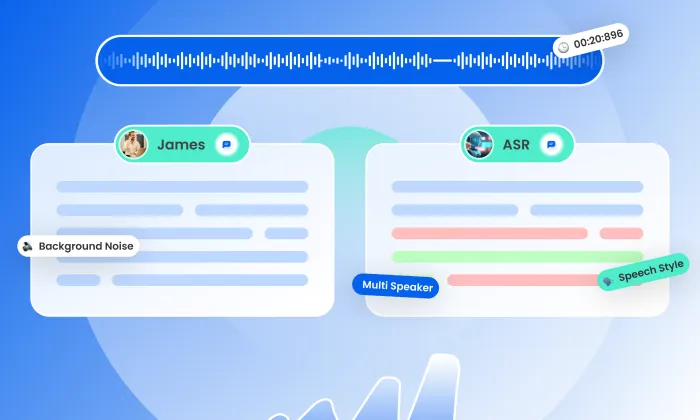What are the risks of in-car speech dataset bias for global fleets and products?
Speech Recognition
Dataset Bias
Global Fleets
In the rapidly evolving field of automotive AI, in-car speech datasets play a crucial role in building robust voice recognition systems. However, dataset bias presents significant challenges, especially for global fleets and products. Understanding and addressing these biases is vital for AI engineers, researchers, and innovation leaders striving for reliable and inclusive AI solutions.
What is In-Car Speech Dataset Bias?
In-car speech dataset bias arises when training data underrepresents certain demographic groups, acoustic conditions, or linguistic variations. This bias can lead to AI models that perform poorly across diverse user bases. Factors contributing to bias include:
- Demographics: Variability in age, gender, language, and dialect affects speech patterns. A non-diverse dataset may cause systems to misinterpret accents or speech styles.
- Acoustic Conditions: The unique sounds within vehicles, such as engine noise or passenger interactions, require diverse recording conditions to ensure models are robust and accurate.
- Speaker Roles: Overemphasis on specific roles, like drivers, can neglect the nuances of passenger speech, particularly that of children or elderly individuals.
Why Addressing Bias Matters
Ignoring dataset bias can have far-reaching consequences:
- User Frustration: Misrecognized commands due to bias can frustrate users and erode trust in the technology.
- Market Limitations: Systems that don't cater to diverse groups can limit market reach and alienate potential customers.
- Regulatory Scrutiny: Companies must ensure fairness and inclusivity to meet increasing regulatory demands.
Real-World Impacts & Use Cases
- Voice Assistants in Luxury EVs: A brand focusing mainly on North American English may find its voice assistant struggling in Europe or Asia, leading to subpar user experiences and lost sales.
- Autonomous Taxi Services: A limited dataset might fail to understand passengers with various linguistic backgrounds, affecting safety and satisfaction.
- Navigation Systems for Global OEMs: Datasets lacking in diversity can result in navigation errors due to misinterpreted accents or dialects.
Mitigating Dataset Bias
Here are strategies to create effective in-car speech recognition systems:
- Diverse AI Data Collection: Gather data reflecting global demographics, including varied ages, genders, and dialects. This should encompass both drivers and passengers in different regions and vehicle types.
- Comprehensive Acoustic Testing: Record in diverse real-world driving conditions and annotate environmental factors like noise and microphone placement.
- Detailed Annotation Strategies: Beyond audio transcription and annotation, include emotional tone, intent detection, and context metadata to enhance training and evaluation.
- Continuous Learning: Develop systems that adapt over time, allowing models to improve accuracy through real-world feedback.
Real-Time Adaptation and Cultural Sensitivity
Real-time adaptation allows AI systems to learn from user interactions, enhancing personalization and understanding. Additionally, cultural representation in data collection is crucial as cultural differences can significantly impact speech and comprehension, adding another layer to addressing bias.
Performance Metrics and Evaluation
Use specific metrics like Equal Error Rate or F1 Scores to assess and mitigate bias effectively. These metrics provide measurable insights for stakeholders to evaluate AI system performance.
The Path Forward
Addressing in-car speech dataset bias is critical for building trust in automotive AI systems. By emphasizing diverse, high-quality datasets and thoughtful data collection, companies can enhance their voice recognition technologies to meet global needs. For developing high-performing AI models that reflect real-world diversity, consider partnering with FutureBeeAI. We offer a range of ready-to-use and custom-built datasets tailored to the unique challenges of automotive AI projects.
Explore Further
To ensure your AI systems are equipped for global success, explore FutureBeeAI’s data solutions. Our custom datasets can be tailored to meet the specific needs of your automotive project, delivering robust and inclusive AI capabilities.
What Else Do People Ask?
Related AI Articles
Browse Matching Datasets
Acquiring high-quality AI datasets has never been easier!!!
Get in touch with our AI data expert now!








